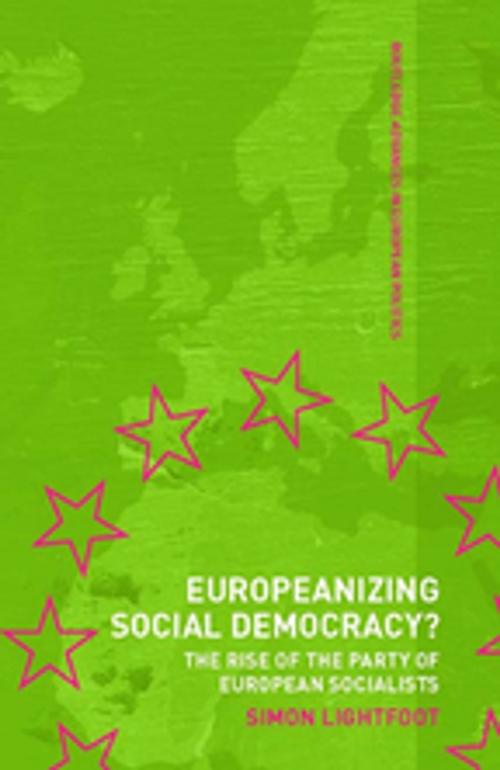Europeanizing Social Democracy?
The Rise of the Party of European Socialists
Nonfiction, Social & Cultural Studies, Political Science, International, International Relations| Author: | Simon Lightfoot | ISBN: | 9781134276462 |
| Publisher: | Taylor and Francis | Publication: | November 14, 2005 |
| Imprint: | Routledge | Language: | English |
| Author: | Simon Lightfoot |
| ISBN: | 9781134276462 |
| Publisher: | Taylor and Francis |
| Publication: | November 14, 2005 |
| Imprint: | Routledge |
| Language: | English |
Presenting a detailed explanation of party politics in the European Union, this new book uses the Party of European Socialists (PES) as a key case study, and tests the relevance of existing theoretical work on the meaning, significance, and prospects for realising other ‘Europarties’.
This analysis operates from the assumption that the PES’s main goal is to influence the outcome of EU public policy, rather than the more traditional party goals of vote maximisation or office seeking. Secondly, by subjecting the PES to careful scrutiny in two specific policy areas (employment and environment) and for specific treaties (in particular the Treaty of Amsterdam), it tests the PES’s ability to construct policy to influence actual policy outcomes. Finally, it shows that whilst the PES was able to play a role in co-ordinating policy amongst the member parties since its formation in 1992, its influence has been exaggerated and the strength of the factors that limit its effectiveness have been underestimated. It argues that domestic policy imperatives and ideological differences between the member parties have hindered the development of the PES, thereby advancing our knowledge of Europarties and contributing to the literature on the Europeanization of political parties.
This book will be of great interest to students and scholars of the European Union and party politics in general.
Presenting a detailed explanation of party politics in the European Union, this new book uses the Party of European Socialists (PES) as a key case study, and tests the relevance of existing theoretical work on the meaning, significance, and prospects for realising other ‘Europarties’.
This analysis operates from the assumption that the PES’s main goal is to influence the outcome of EU public policy, rather than the more traditional party goals of vote maximisation or office seeking. Secondly, by subjecting the PES to careful scrutiny in two specific policy areas (employment and environment) and for specific treaties (in particular the Treaty of Amsterdam), it tests the PES’s ability to construct policy to influence actual policy outcomes. Finally, it shows that whilst the PES was able to play a role in co-ordinating policy amongst the member parties since its formation in 1992, its influence has been exaggerated and the strength of the factors that limit its effectiveness have been underestimated. It argues that domestic policy imperatives and ideological differences between the member parties have hindered the development of the PES, thereby advancing our knowledge of Europarties and contributing to the literature on the Europeanization of political parties.
This book will be of great interest to students and scholars of the European Union and party politics in general.















